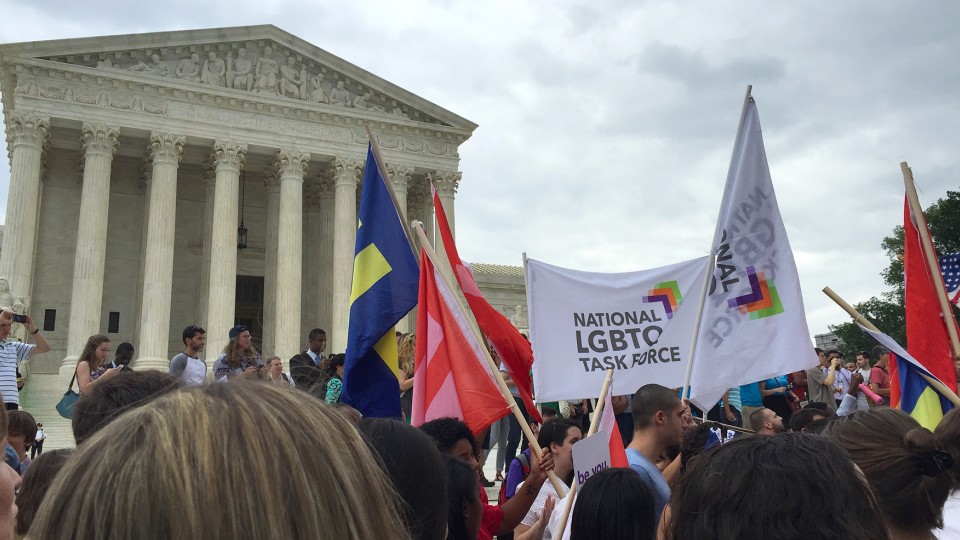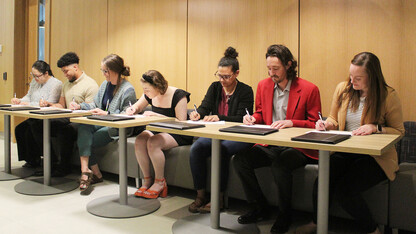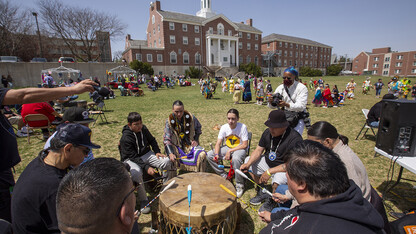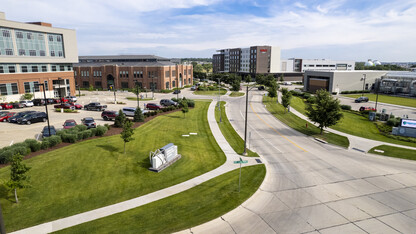· 4 min read
UNL experts say same-sex marriage ruling fueled by public attitudes

Gay couples began heading to Nebraska courthouses Friday morning, shortly after the U.S. Supreme Court issued a landmark, 5-4 decision that made same-sex marriage the law of the land.
Experts at the University of Nebraska-Lincoln offered their thoughts on the possible political and legal consequences of the historic ruling.
Eric Berger, an associate professor at the University of Nebraska College of Law, said Nebraska Gov. Pete Ricketts and Attorney General Doug Peterson made the right call when they said they would comply with the ruling instead of attempting to fight or delay it.
“It was the smart thing to do,” Berger said. “They would have lost anyway and have had to pay attorney fees. The marriages are going to proceed anyway.”
The decision came after a transformation in public attitudes toward gay marriage, observed political science professors Elizabeth Theiss-Morse and John Hibbing.
“The speed at which public opinion has shifted on same-sex marriage is really quite astounding,” said Theiss-Morse. “A majority of Americans, sometimes a huge majority, has opposed same-sex marriage up until 2011, when we see the percentage of supporters surpass the percentage of opponents, according to both Gallup and Pew Research Center data.”
One driving force behind the change is younger people, especially Millennials, who overwhelmingly support same-sex marriage, she said. Older Americans, including Baby Boomers, are much less likely to support it.
“What is amazing, though is people of all ages have experienced a significant increase in support of same-sex marriage over the past 10 years,” she said.
Support has also increased among political parties.
A recent Pew poll showed that about 65 percent of Democrats and Independents support same-sex marriage. Among Republicans, more than a third support it in 2015, compared to 17 percent in 2004. A December 2014 Omaha World-Herald poll showed 34 percent of Nebraskans supported same-sex marriage while 54 percent oppose it. The results suggest a significant shift in attitude since 2000, when 70 percent of Nebraskans voted for a constitutional ban on gay marriage.
Hibbing said he said the ruling puts Republican presidential candidates “in a quandary.” Though attitudes have shifted significantly and rapidly, gay marriage continues to have strong opponents who are unlikely to go away soon. Those opponents will push candidates to the right during the GOP primaries.
“But such a position is increasingly a big loser in the general election — especially among young people,” Hibbing said. “I think it would be a challenge for a strongly anti-gay-marriage candidate of whatever party to get elected in 2016 and certainly beyond that. People are becoming more libertarian on issues such as this.”
Theiss-Morse, however, said that in her view, the decision takes same-sex marriage off the election issue agenda because it resulted from a Supreme Court ruling, not a piece of legislation.
“What impact will this ruling have on the 2016 election? I don’t think much,” she said. “The two majors have pretty much staked out their positions on this issue.”
Berger said public opinion likely was a factor in the Supreme Court’s decision.
“Though I didn’t see where Justice (Anthony) Kennedy mentioned public opinion specifically in his 100-page opinion, I do think public opinion affects the decisions the Supreme Court makes. The court doesn’t want to be too far in front of or too far behind the rest of the country. This is an issue where the majority of Americans now favor same-sex marriage. Among younger people, most now support it.”
The ruling, though historic, was not unexpected, Berger added. Most followers of the high court expected it to come down to a 5-4 opinion authored by Kennedy, a Reagan appointee who has authored most of the court’s opinions in support of gay rights during the past two decades.
One thing that might surprise legal scholars — though it makes little difference to the decision’s “bottom line” — is that Kennedy rooted the decision more in arguments about liberty than about equality, he said.
In other words, same-sex couples are entitled to marriage as a fundamental right, and not just a matter of receiving the same benefits offered to other couples.
Berger says it remains to be seen how that subtle difference might play out in future court rulings.
MEDIA CONTACTS: Eric Berger, 402-472-1251, eric.berger@unl.edu; Elizabeth Theiss-Morse, 402-472-2891, etheissmorse1@unl.edu; John Hibbing, 402-472-3220, jhibbing1@unl.edu







